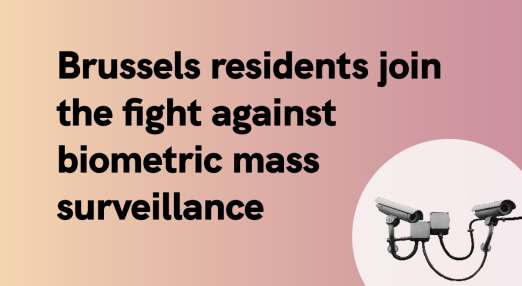Blogs
Filter by...
-

Internal market MEPs wrestle with how to fix Commission’s CSAR proposal
The European Union’s proposed CSA Regulation (Regulation laying down rules to prevent and combat child sexual abuse) is one of the most controversial and misguided European internet laws that we at EDRi have seen. Whilst aiming to protect children, this proposed law from the Commissioner for Home Affairs, Ylva Johansson, would obliterate privacy, security and free expression for everyone online.
Read more
-

Health and digital rights organisations urge EU lawmakers to uphold patients’ rights in new health data law
European lawmakers must ensure patients have control over their private medical records by adding an ‘opt-in’ consent requirement for the secondary use of health data under the proposed European Health Data Space (EHDS).
Read more
-

Decolonising Digital Rights: a process imbued with love
This blog reflects on the end of the design phase of the decolonising digital rights in Europe process. It discusses our learnings and the next steps of the process as we begin to build and disseminate the programme.
Read more
-

EU-US plan offensive to legitimise police access to data, civil society responds amid growing fears – Press Release
On 6 April 2023, EDRi and 8 partners sent an open letter to the European Commission President Ursula von der Leyen and Vice President Margrethe Vestager, as well Swedish Prime Minister Ulf Kristersson. Through the letter, the organisations called out the clear and deliberate plans to disregard international human rights standards in the EU-US approaches to security in the digitalised society, in particular in regards to end-to-end-encryption.
Read more
-

Shaping the next 20 years of digital rights in Europe
Last week we celebrated the 20th anniversary of EDRi, the European Digital Rights network, and its two decades of defending and promoting rights online and off. The digital rights movement has come a long way and we are at a crucial moment to shape our shared digital future for the better. The EU’s fundamental rights framework has been pivotal in our achievements so far, but it has never served everyone equally. How can we better equip Europe for the human rights challenges of the digital age?
Read more
-

Unprecedented appearance by European Commissioner for Home Affairs, innovating on quicksand, and the cabinet vs. online confidentiality
Read through the most interesting developments at the intersection of human rights and technology from the Netherlands. This is the second update in this series.
Read more
-

“Social media profiles and phone contacts” used as proof of identity for deportations
Thirteen non-EU countries sometimes accept “social media profiles and phone contacts” as evidence of identity for the purpose of deportations, according to an internal European Commission assessment of third country cooperation on readmission.
Read more
-

Manchester 10: Open letter asks Andy Burnham to tackle discriminatory ‘gang’ surveillance
Advocacy groups and human rights organisations have written to the Manchester Mayor, Andy Burnham, and the Chief Constable of Greater Manchester, Stephen Watson, to ask them to investigate discriminatory police practices in the wake of the conviction of ten young Black men, known as the Manchester 10.
Read more
-

Mapping the impact of biometric surveillance and social media platforms on civic space
The European Center for Not-for-Profit Law is concerned about safeguarding human rights and limiting the negative impacts of security technology on civil society. Therefore, they launched a report with partners as a step to investigate how technologies introduced in the name of security and counter-terrorism will impact civil society.
Read more
-

Protect My Face: Brussels residents join the fight against biometric mass surveillance
The newly-launched Protect My Face campaign gives residents of the Brussels region of Belgium the opportunity to oppose mass facial recognition. EDRi applauds this initiative which demands that the Brussels Parliament ban these intrusive and discriminatory practices.
Read more
-

Repression is really something different than prevention
In 2021, a 17-year-old boy in the Netherlands was arrested for inciting of riots. The boy had called for people to come to Utrecht with fireworks as a protest against the corona policy and the fireworks ban. The boy received a so-called "online area ban" from the municipality, even though the mayor does not have a legal basis for such an order. He was no longer allowed to make statements online that could lead to disorder in the city. Local rules do not provide majors the authority to curtail the freedom of expression as prevention, online or otherwise.
Read more
-

EDRi-gram, 29 March 2023
Last week, with a close circle of friends and supporters in Brussels, EDRi celebrated twenty years of defending and advancing digital rights across Europe. It was an evening full of reflecting on our journey and successes and also building hope and strategies for the future of Europe’s digital rights movement. A huge thank you to everyone who joined us for making the celebration truly special! In this edition of news from the digital rights world, read about a new Brussels-focused campaign against mass facial recognition. Residents of the Belgian capital can join the initiative and demand that the Brussels Parliament bans these intrusive and discriminatory practices. We also explore the concerning revelation that unverified information such as “social media profiles and phone contacts” are being used for the purpose of deportations, according to an internal European Commission assessment.
Read more
